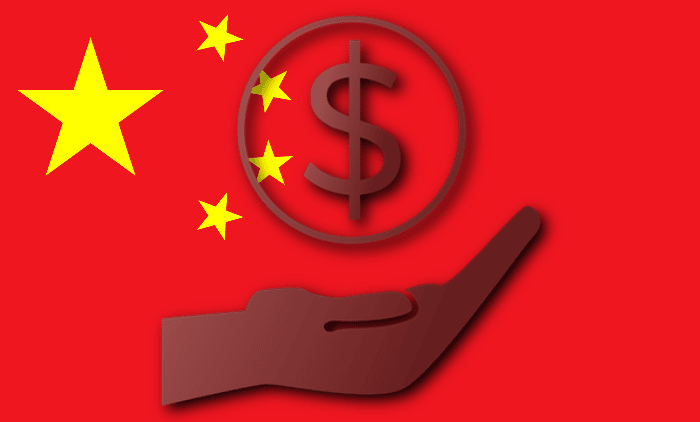“Password-free payment”, please pay attention to the security risks behind the convenience
[ad_1]
“I don’t know when the ‘password-free payment’ function was activated. It wasn’t until I received frequent bill reminders on my phone that I discovered that the platform account was stolen, and the other party spent more than 5,000 yuan through ‘password-free payment’. This kind of operation is related to member security. Prompts should be placed in obvious locations to prevent consumers from being confused about being exempted from passwords.” Recently, Mr. Li, a citizen of Qingdao, Shandong Province, told a reporter from Workers’ Daily about his experience of having his account “stolen.”
Mr. Li introduced that he had invited Yang, a 21-year-old credit card salesman, to come to his home to handle credit card and POS business. Many processes needed to be completed on his mobile phone. Mr. Li handed over his mobile phone to Yang to operate while he was busy with other tasks in the store. .
During the process, Yang helped Mr. Li activate the “password-free payment” function on the online shopping platform. After that, Yang used Mr. Li’s mobile phone verification code to log in to Mr. Li’s account on Yang’s mobile phone, without Mr. Li’s knowledge. In the next half month, Yang used Mr. Li’s account to make 18 purchases, totaling more than 5,000 yuan. After receiving the bill reminder, Mr. Li immediately called the police to file a case. Later, Yang was criminally detained by the police in accordance with the law.
In the digital age, with the advancement of technology and the acceleration of the pace of life, online shopping platforms have set up “password-free payment” functions one after another, which not only brings convenience to users, but also provides opportunities for criminals. With the rapid popularization of password-free functions, related theft cases and oolong incidents are common, and the security situation is worrying.
In real life, there are many people who have similar experiences to Mr. Li. Some people have lost their mobile phones and were used by criminals to buy goods through “password-free payment” because they did not set a lock screen password; some parents have neglected management and their children purchased toys or game equipment through the “password-free payment” function; there are also many online fraudsters Using the “password-free payment” function to steal consumer accounts often brings large amounts of economic losses to consumers.
Since the “password-free payment” function has certain security risks, why do the public still choose to enable it? The reporter randomly interviewed consumers of different ages. The views of the younger generation focused on “convenience, trouble-free, and time-saving.” Older people simply don’t know how to activate the “password-free payment” function. Most of them are “password-free” without knowing it, let alone how to cancel it.
During the interview, the reporter found that once services such as power bank rental, shared bicycle rental, and hotel credit accommodation are used, “password-free payment” is enabled by default and the merchant is authorized to automatically deduct money after the customer selects the corresponding payment channel. However, the “password-free payment” function of some online shopping platforms is set on the payment interface, prompting “whether to enable the ‘password-free payment’ function” in a smaller font size than other instructions. Some even have an “enabled by default” option, which makes it easy for consumers not to use the password-free payment function. Open with knowledge. Some platforms also induce consumers to activate the “password-free payment” function by offering an immediate discount of 1 yuan to several yuan. In addition, when users activate the “payment code” on WeChat, Alipay and other platforms, they agree to activate the “password-free payment” function by default.
Compared with the convenience when activating it, canceling this function is not convenient. By operating the two payment platforms, the reporter found that it basically requires more than 6 steps to complete. It is difficult to operate accurately in a “maze”-like system without previous step-by-step inquiries.
Does this phenomenon of “being exempted from confidentiality” infringe on the rights and interests of consumers? In this regard, Liu Kunbao, a lawyer at Shandong Yuanheng Law Firm, said that according to the relevant provisions of the “Consumer Rights Protection Law of the People’s Republic of China” and the “Civil Code of the People’s Republic of China”, if a merchant does not clearly inform and obtain the consent of the consumer, The “password-free payment” function is enabled by default, which is suspected of infringing on consumers’ rights to know and choose.
“Platforms or merchants should abide by laws and regulations, clearly inform consumers of the activation conditions, risks and cancellation methods of the ‘password-free payment’ function, and provide obvious prompt information. This function should not be checked by default.” Liu Kunbao suggested that relevant departments should Strengthen platform supervision and impose timely and effective penalties for violations of regulations; consumers should set a lock screen password, be vigilant when downloading apps or using public WIFI, and regularly check account transaction records. Once a mobile phone or bank card is found to be lost, they should immediately Call the police and report the loss through the bank or platform, change the relevant passwords in a timely manner, and try to minimize the loss.
[ad_2]
Source link



